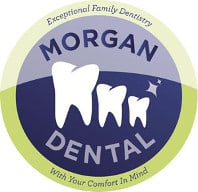When you receive a dental crown, you are making an investment in your mouth. Please take the following steps to ensure that your dental crown will last you for years to come.
Brushing
- Brush twice a day for at least 2 minutes.
- It is possible to get a cavity under your crown. Pay special attention to your gumline. Plaque and bacteria at your gumline will lead to decay that can cause your crown to fail.
- A mechanical or ultrasonic brush, such as Sonicare, will help you to adequately remove plaque and bacteria. In addition, most electric brushes have a timer that assists you in brushing for a full 2 minutes.
- Pay special attention to the area where the crown meets your natural tooth and gums on the tongue side and cheek side. This area can trap bacteria and plaque which can lead to a cavity under your dental crown.
Flossing
- Floss all of your teeth at least once a day.
- Make sure that you insert your floss in between each tooth. You should hear a “pop.”
- Wrap the floss around each tooth and move it up and down to loosen and remove food and bacteria.
- Use a new section of floss for each tooth.
- Floss fingers and other appliances available at the grocery store can help you reach your back teeth easily.
- Waterpicks and Sonicare AirFloss are useful to help keep the bottom area of the open space between your teeth clean. You must still floss the contact where your dental crown and adjacent teeth meet (the “pop” area described above).
Fluoride
- Prescription strength fluoride can prevent new cavities and reduce gum inflammation caused by bacteria.
- Fluoride also reduces tooth sensitivity and soothes discomfort after tooth whitening.
- Fluoride is available in gel, rinse, and toothpaste forms as well as multiple flavors and strengths. Nicole, our hygienist, and Dr. Morgan can help you choose the fluoride that is best for you.
Dental Visits
- You should visit our office at least twice a year for professional dental cleanings or more often if directed.
- At least once per year x-rays will be taken and each tooth will be checked for cavities, cracks, and infection by Dr. Morgan. Please call our office at any time if you are experiencing any tooth problem or wish to see our hygienist or Dr. Morgan. We are here to help.
Want to learn more? See Dental Crowns.
